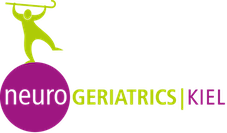Code of Conduct of the Neurogeriatrics Research Group, CAU Kiel
All members and guests of the Neurogeriatrics Research Group, including affiliates of Kiel University, are expected to adhere to the following code of conduct. Additionally, all affiliates are required to adhere to the Kiel University Code of Conduct (https://www.uni-kiel.de/gf-praesidium/de/recht/interne-richtlinien/code-of-conduct).
Statement of Intent
Our research group is committed to fostering an environment of respect, appreciation and professionalism. We provide a safe and welcoming environment for everyone, regardless of gender, gender identity, age, sexual orientation, disability, ethnicity, religion, socio-economic status and conflicting positions and opinions on research issues. We do not tolerate any form of harassment of members or guests. We promote equal opportunities for researchers and diversity in their research. We produce verifiable research results that meet ethical standards and good scientific practice for the responsible management of research freedom and risks.
Expectations of Lab Engagement and Personal Career Work
As a general rule, we are not able to offer permanent positions. However, from the first day of employment/working in our lab we work on ways to support individual future career steps. This includes
- Introducing existing workstreams and projects to new members of the research group,
- Discussing how new projects and ideas can be integrated into the lab as smoothly and efficiently as possible, and
- Commenting on your abstract, paper and thesis drafts within a reasonable timeframe (which is usually within 5 working days; otherwise you can expect an explanation and a suggestion for an alternative deadline from your direct supervisor, and you should involve the research group leader(s)).
In order to achieve these objectives, all staff and visiting researchers are expected to
- Attend weekly laboratory meetings, unless there is an unavoidable conflict. The meetings usually last 1 hour and all members are invited to share the main activities of the previous week. This meeting also serves as a platform for more detailed presentations of scientific progress, which are usually given by each member of staff at least twice a year.
- Be proactive in organising their projects and upcoming deadlines, avoiding last-minute scrambling, and in organising regular meetings with their supervisor(s) / research group leader(s).
- Actively support the training of the next generation of scientists in our research group and beyond
- Respond to enquiries from research group leader(s) and supervisor(s) within 1-2 working days (even if the response is only to acknowledge receipt of the message). Conversely, the group leader(s) generally respond quickly to any type of request unless they are travelling or away from the office. They primarily use email, WhatsApp and Discord for communication.
Work / Life Balance and Working Remotely
We aim to promote a healthy balance between work and personal life. We support people with childcare and adult care responsibilities, offering partially flexible work hours. We also fully support individuals with illnesses, handicaps and accessibility needs.
We aim to strike a balance between the flexibility of remote working and the collaborative, innovative spirit of our research lab. For this reason, colleagues who work remotely are encouraged to visit the lab in Kiel on a regular basis. The frequency and duration of these visits can be discussed and determined according to individual circumstances and ongoing projects.
Any member wishing to work remotely must obtain explicit permission from the group leader(s) or their nominated deputies before commencing remote work. Regardless of remote location, all colleagues are expected to participate virtually in the weekly group meetings.
Responding to Incidents
If you are being harassed, notice that someone else is being harassed, or have any other concerns, please contact research group leader(s) as soon as possible. Anonymous comments may also be made to them. If you are not comfortable contacting them directly, you may report your concerns to one of the relevant University of Kiel offices that are prepared to respond to harassment complaints (e.g. https://www.referat-personalentwicklung.uni-kiel.de/de/informationsangebote/who-is-who/intern/beratung/das-ombudsteam-der-cau).
Climate Change Considerations
Recognising the profound human impact on climate change and its serious consequences for our lives, we are committed to actively addressing this issue within our academic environment. Our commitment includes not only integrating climate considerations into our scientific endeavours, but also focusing on the responsible use of resources, particularly energy. Concrete steps include ensuring that lights and electronics are switched off when not in use, adopting environmentally friendly printing practices, prioritising public transport for meetings and conferences, and offsetting CO2 emissions when air travel is unavoidable.
